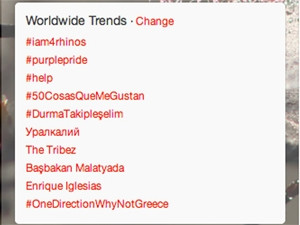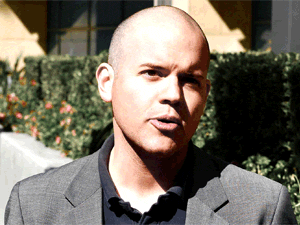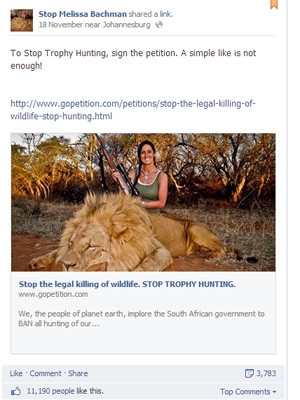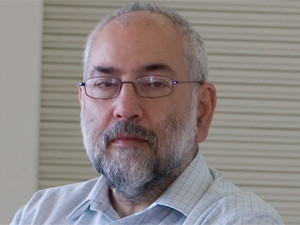
Throughout his life, Mahatma Gandhi practiced non-violent resistance as a method of protest. In 1955, US civil rights activist Rosa Parks stood up by sitting down when she refused to give her seat in the coloured section of the bus to a white passenger. And in 1976, thousands of South African students burnt their school books as an act of rebellion against Bantu education.
All known for confronting systems and ideologies they believed to be unjust - these individuals and groups embody the essence of social activism.
The modern day protest is quite different. The digital revolution means we rarely hold sit-ins or embark on hunger strikes in opposition to, or in support of, something we believe in. Instead we like causes on Facebook, sign online petitions, or add a specific hashtag to our tweets as a pledge of solidarity.
This new breed of protest has been dubbed "slacktivism". A combination of slacker and activism, the term denotes the support of an issue with little to no practical effect other than to allow the person doing the act to derive satisfaction from the feeling they have contributed in some way.
According to a recent study by the University of British Columbia, token acts of support like signing an online petition, changing your profile picture on a social network, or wearing a badge or ribbon, commonly results in a lack of actual social action. The study found that when people engaged in more public displays of endorsement - like joining a group on a social network - it made them less likely to volunteer their time or offer financial support for a cause at a later stage.
Flow Communications CEO Tara Turkington disagrees. "Change starts with knowledge and conviction. No one is going to take action about something they don't know about and that is where social media can be useful." Many of the problems facing us today require the man on the street to take a stand and if everyone just keeps quiet about things, global leaders will continue to do nothing, she adds.
"At the core of this dismissiveness of 'slacktivism' is the belief that real social change requires deep commitment - things like sit-ins or marches," says Mark Anthony Dingbaum, communications manager at Change.org, the world's largest petition platform. "But the goal of public mobilisation isn't for it to be difficult - it's for it to be effective. And by this measure, 'slacktivism' has had some remarkable recent success."
Helpful hashtags
In the run-up to World Rhino Day on 22 September 2013, the World Wide Fund for Nature (WWF) enlisted the help of Turkington and her team to raise awareness about the plight of global rhino populations.

The aim was to create a "Twitter storm" and generate one million tweets using the campaign's Iam4rhinos hashtag. While they failed to meet this six figure target, the sheer magnitude of the campaign was unprecedented, with it trending globally thanks to support from thousands of Twitter users, including prominent celebrities. "The idea was to use South Africa's passion for rhinos and their intimacy with the problem to create global interest," says Turkington. "I would argue that this was South Africa's most effective Twitter campaign using a predetermined hashtag."
Initially, most of the tweets came from SA, she points out, but by the end of the campaign the percentage of tweets coming out of SA had dropped below 50%.
Professional boxer Lennox Lewis got involved in the initiative by promising to reply to any questions posed by his followers if their tweets featured the Iam4rhinos hashtag. Lewis spent much of World Rhino Day fielding questions from fans, at one stage tweeting: "Ok thanks for the #iam4rhinos tweets. I have to run. Keep spreading the word tho. Today is #WorldRhinoDay. Horns are NOT medicine!"
According to Turkington, the team had no idea how large the campaign would become. "It was meant to be a targeted, short campaign but it grew into something so much more than that. It has become a movement."
Likes, lions and online petitions
Towards the end of last year, an image of a woman perched beside the male lion she had just hunted and killed became the most talked about thing on the Web. The woman in question, Melissa Bachman, is a US television presenter and hunter who became an online pariah after posting the controversial photograph on her personal Facebook page.

Responses to the image, and to her actions, were mixed. Some stressed that Bachman's trophy hunting expedition was entirely legal, while other criticised the practice of hunting in general and dubbed Bachman as "disgusting" and a "coward".
The Stop Melissa Bachman Facebook page was launched about two weeks later and has received over 350 000 likes to date. An online petition linked to the page has also received a great deal of support, with upward of 60 000 signatures. For page creator, Jared Melamed, the purpose was to start a campaign against trophy hunting, calling for an end to the murder of wildlife for sport.
"There has been so much response to this from people all over the world. Without technology, the Internet and social media, this level of support would not have been possible," Melamed says.
"Unfortunately, Bachman has become the poster girl for this issue but she is just a drop in the ocean. This is not a witch hunt for her. It just so happened that the picture she took became a catalyst to raise awareness about trophy hunting."
Melamed plans to submit the above mentioned petition to government and is looking to start an NGO to campaign for an end to canned lion hunting.
This is not the first time huntress Bachman has felt the ire of the online community. In August 2012, roughly 13 000 people signed a Change.org petition calling on National Geographic to halt the screening of a show about surviving the wilds of Alaska, which featured her hunting exploits. A flurry of responses to the petition led National Geographic to eliminate Bachman from the show's ensemble cast.

"The world is more connected than ever before, and the result is a dramatic shift in the relationship between regular people and powerful institutions. It's easier now than at any point in history for one individual to inspire unprecedented numbers of people to come together for a cause," says Dingbaum. He asserts that platforms like Change.org make it easier for normal people to make a difference, while changing their perceptions of what is possible.
Random hacks of kindness
Hacktivism is the use of computers and computer networks to promote political ends, chiefly free speech, human rights and information ethics.
Perhaps one of the most prolific hacking groups, Anonymous, has come to be known as an anarchist movement that uses the cyber skills of its members to challenge everyone from governments and religious groups, to individuals and large corporations.
But not all of its activities are as sinister as they seem. In 2012, the hacktivist network used its technological clout to come to the aid of a young girl from Steubenville, Ohio who was gang raped by two high school students after getting drunk at a party.
Even though the non-consensual sexual acts were live-tweeted and images were posted on Instagram, her attackers were not charged because they just so happened to be players on the town's star football team. The group posted a video on YouTube unpacking the assault and calling on all those responsible to come forward and issue a public apology to the girl and her family or they would be exposed for their actions.
The #Iam4rhinos campaign in numbers:
* Over 150 000 tweets featuring #iam4rhinos were tweeted
* Tweets were sent from people in over 100 countries
* The hashtag generated 320 million impressions
* 53 624 individuals tweeted #iam4rhinos
* Stephen Fry was the most influential tweeter with more than six million followers
"Make no mistake, all you need is a Google search engine to realise we are serious in what we do. You can hide no longer," the anonymous activist states in the video, wearing the group's signature Guy Fawkes mask. "We will not sit tightly by and watch a group of young men who turn to rape as a game, or sport, get the pass because of athletic ability or small town luck. You now have the world looking directly at you."
The two football players involved in the attack, Malick Richmond and Trent Mays, were found guilty of rape in March last year.
Similarly, in October 2013, Anonymous launched another campaign in support of two sexual assault victims, this time from Missouri. The teenage girls, Daisy Coleman and Paige Parkhurst, were allegedly raped by high school football star, and grandson of a Missouri state official, Matthew Barnett. Their attacker walked free. While the charges against Barnett have been dismissed, Anonymous is calling for an immediate investigation into the handling of the case by local authorities.
Closer to home, in November 2013, a weekend hackathon in Braamfontein saw about 40 creatives, software engineers and computer programmers coming together to develop a socially relevant and responsible piece of work. According to professor Barry Dwolatzky, director and CEO or the Joburg Centre or Software Engineering, the hacking event was organised with the intention of creating something for the greater good.
"This type of hacking is about bringing together a group of people who are obsessed with digital technology to develop something awesome in a short amount of time," says Dwolatzky. He continues that through collaborative events like hackathons, people can work together, generate new ideas and learn the kind of skills that can bring about positive social change.
"Digital technology has the capacity to solve social ills. Technological progress and innovation should be directed to solve social problems," Dwolatzky continues.
Digital technology, social media and "slacktivism" facilitate wider involvement in social mobilisation than ever before possible, says Dingbaum. "That involvement raises awareness and demonstrates public support for an issue, which then drives media coverage and forces decision-makers to consider public opinion in making decisions. When people in power know that their actions are being scrutinised, they change the way they make decisions."
Social media has changed the power relations between the public and the media, Turkington concludes, stressing she truly believes social media can be a tool for transformation. "I think it is old fashioned for people to say that social media is not real activism. It is just activism on a different platform. Using these tools, we don't even have to know each other but if we all stand together and focus our efforts, we can change the world."
Share